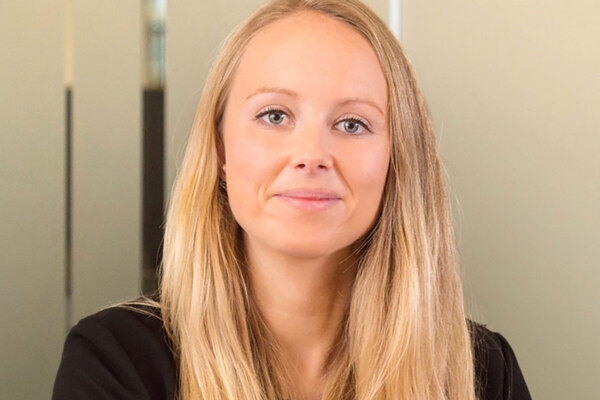You are viewing 1 of your 1 free articles

Engaging the next generation of house builders is key to addressing our skills shortage
House builders must get out into schools if we are to solve our skills shortage, says L&Q’s Natalie Playfair
One of our main priorities of the L&Q Foundation is increasing social mobility and aspiration among our young residents. To support this, we have spent the past two and a half years engaging secondary school pupils through our £1m Learning to Succeed programme, which highlights the huge number of careers available to them in the housing and construction sector and built environment.
We’ve learned a lot in this time. An initial survey of 1,095 16 to 18 year olds showed that only one in 10 would consider a career in construction, even though more than half were interested in subjects that qualify them for the industry. The Construction Industry Training Board estimates were that the sector needed an extra 168,500 workers over the following five years to support construction growth and account for an ageing workforce, so it was clear we needed to improve the sector’s image with young people to help it – and them – thrive.
“We realised early on how important it was to address negative stereotypes about construction”
We realised early on how important it was to address negative stereotypes about construction and the sense that some pupils, especially girls, had that it was ‘not for them’.
Volunteers from L&Q, including CEO David Montague, and our partners at the Construction Youth Trust have delivered STEM and practical careers advice and skills sessions using the nationally recognised Gatsby benchmarks. We have worked in more than 30 secondary schools in London to show the huge range of jobs available in housebuilding.
Up to five students per school are offered a week’s work experience at L&Q in any department; we have also just started offering targeted support sessions to 40 students in years 11 and 13 who are at risk of failing to find work after leaving school, to help them develop the skills employers want.
We’ve had great feedback from staff and pupils; we have been encouraged as well to see that BAME students and girls in particular are taking a real interest in the opportunities on offer. Many students have said they would never have considered a career in the industry because they didn’t know anyone else who worked in construction, but they are now keen to explore their options in the sector as a result of the sessions.
This, to us, is a true measure of success and an important part of improving social mobility. As we move forward, we plan to offer more joined-up support that paves the way for interested young people to enter the industry by linking them with our apprenticeships and employment support programmes.
“We believe it is our responsibility both to communities and to young people to continue this work”
We have many plans to expand this programme – and we’d like others in the sector to join us. We intend to set up a consortium of organisations that are interested in developing schools partnerships early next year. Using what we have learned over the course of the programme and having seen the impact it has already had, we believe it is our responsibility to communities and to young people to continue this work. We are keen to engage not just other housing associations, but also our partners in the supply chain and other organisations who want to get involved that have opportunities to offer.
The programme successfully pivoted to digital delivery during lockdown and we are now strengthening our suite of online resources to reach other parts of the country, including the North West where Trafford Housing Trust is already trialling parts of the model.
From an initial aim of engaging 4,000 pupils, we have now held sessions with more than 10,000 students; the programme has also won a community impact award at this year’s Business Charity Awards. As the programme moves from strength to strength, we are exploring the possibility of running the programme in special education needs schools, as well as primary schools connected to the secondaries where Learning to Succeed is already established.
Our vision is to take down any barriers that are preventing young people from becoming part of the sector, helping them and the industry to succeed as we all look to the future together.
If you would like to find out more about the consortium or are interested in getting involved, please email LTS@lqgroup.org.uk
Sign up for our development and finance newsletter
Already have an account? Click here to manage your newsletters












